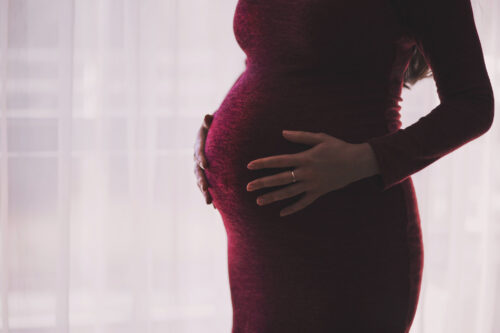Image courtesy of freestocks.org.
Change is pervasive in every phase of pregnancy and results in alterations in physical appearance and lifestyle. However, researchers are now investigating how pregnancy may also affect something less obvious: biological age. While women chronologically age by approximately 280 days over the course of a forty-week pregnancy, their biological age—measured by physiological markers, such as heart rate and hormonal levels—may increase much more.
Recently, researchers from Yale University published findings indicating that pregnancy can change the progression of maternal biological aging. The study was conducted using blood samples from 119 pregnant participants in the UC Irvine Development, Health and Disease Research Program.
“The […] cohort is one of the few cohorts in the world where longitudinal genome-wide DNA methylation data were available spanning early-, mid-, and late-pregnancy as well as three months postpartum,” said Kieran O’Donnell, an assistant professor at the Yale School of Medicine and senior author of the paper.
DNA methylation is an epigenetic modification, meaning that it affects gene expression without changing the underlying DNA sequence. Instead, DNA methylation involves adding chemical tags to specific sites on the DNA to regulate which genes are turned on or off. The researchers modified principal component-based epigenetic clocks, including PCPhenoAge and PCGrimAge, which can be used to estimate biological age. These clocks work by detecting patterns in DNA methylation from blood samples to identify how closely an individual’s DNA methylation data matches that of particular age groups.
Prior versions of epigenetic clocks analyzed DNA methylation at individual sites across the genome, but Yale researchers retrained the models to use data from thousands of sites instead. “By not relying on individual sites for the prediction of epigenetic age the technical error in measure of epigenetic age is greatly reduced,” O’Donnell explained.
The team found that while each of the biological-age estimation models reviews the data differently, they all indicated a significant increase in maternal biological age between early and late pregnancy, ranging from 1.19 years using the PCGrimAge model to 2.52 years using the GrimAge2 model. The findings indicate that pregnancy may serve as a natural physiological stressor that disrupts the body’s homeostasis.
Biological age begins to reverse, however, in the period from late pregnancy to three months postpartum; according to O’Donnell, the UC Irvine cohort allowed the researchers to investigate this phenomenon, which may be clinically relevant. “We believe this reversal may index an individual’s capacity to recover from the physiological stress of pregnancy,” O’Donnell said. For instance, pre-pregnancy body mass index (BMI) and breastfeeding were two important factors that affected the degree of biological age reversal. Women with a higher BMI were found to have greater biological aging postpartum compared to those with a lower BMI. Irrespective of pre-pregnancy BMI, women who exclusively breastfed had a greater decrease in biological age postpartum.
As the group works to determine how epigenetic clocks can improve understanding of maternal perinatal health outcomes, the researchers believe it will be important to incorporate additional factors that impact pregnancy and maternal health. “We think it will be important to examine the interaction between social determinants of health, and chronic psychosocial stressors such as racism and discrimination to test if postpartum recovery of maternal biological age is sensitive to exposures we know are of relevance for long-term maternal health outcomes,” O’Donnell said.

